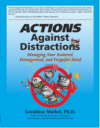How Much Sleep Are You Losing?
More than a third of American adults are not getting enough sleep on a regular basis. With the increase of holiday activities and pressures, comes greater neglect of good sleep routines.
How much sleep is recommended for you and family members? Guidelines suggest the following:
- 7 to 10 hours for the average adult
- 8 to 10 hours for teens
- 9 to 12 hours for children
The holiday season may may cause your poor sleep habits to get worse. Ample energy is key resource for completing your holiday “To Dos” and enjoying the festivities.
How Do Lack of Sleep and Fatigue Impact Your Productivity?
According to Fortune magazine: “A lack of sleep among the U.S. workforce is costing approximately $411 billion and losing 1.2 million working days per year, a new study has found.”
The National Sleep Foundation states that: “People spend an average of 4.5 hours doing work at home each week, with 20 percent spending 10 or more hours working at home. This could represent a cycle in which people are less productive at work because they’re tired, so they bring work home, only to have it interfere with their sleep.”
How Do Lack of Sleep and Fatigue Impact Your Safety?
Less sleep brings fatigue, irritability, and greater susceptibility to distractions, especially when driving; and there are serious consequences to driving when fatigued. For example, one study found “Skipping two hours of sleep may double your crash risk.”
Clearly, sleep is a vital aspect to both productivity and ability to focus. Poor sleep habits also impact health. Governmental reports on sleep problems say that poor sleep habits and sleep loss has considerable and often severe health consequences.
5 Tips for Better Sleep Habits
If you were to give yourself a Holiday gift, make it the gift of better sleep habits. Consider these 5 tips suggested by Tara Parker-Pope.
- Keep to a schedule: When you set routines for going to bed and waking up, exercise, and other activities, you feel less hassled and more in control. This reduces stress and enhances your focus and productivity.
- Avoid long naps: If you’re fatigued, take a rest or not more than 30- minute snooze.
- Dial down the digital gadgets: Charge the computers and phones in another room. Read print rather than devices with the blue light, since it acts on your brain as sunlight.
- Restrict your bed for sleep and intimacy. Activities such as watching television, working on your computer, or talking on the phone may not induce drowsiness. Listening to music or audio books may help you drift off.
- Find activities that help you relax. Ask, “What has helped me move toward restful slumber?” For example, have you relaxed with a bath, soft music, or sounds of nature, such as rain or ocean wave? What might you try?
For more suggestions, read my blog “Good Night Brain…Fighting Fatigue by Sliding into Slumber;” and “Seven Steps to Stop Fatigue From Eroding Leader Productivity.”
Keep tabs on your need for shuteye and ways that fatigue due to insufficient sleep effect of your mood, productivity, and driving safety.
*******************************
 If you, or someone you know has challenges with sleep and fatigue, an entire chapter in my book Actions Against Distractions is devoted to assessments, solutions and resources for this and other “demons of distraction.” (Makes a great Holiday Gift)!
If you, or someone you know has challenges with sleep and fatigue, an entire chapter in my book Actions Against Distractions is devoted to assessments, solutions and resources for this and other “demons of distraction.” (Makes a great Holiday Gift)!
Get my free app with tips for conquering the 8 demons of distraction at your fingertips (i-phone or android)
https://gerimarkel.com/productivity-store/
Click Here for Great Resources from Dr. Geri Markel
Dr. Markel Offers Leadership and ADHD Coaching
Value-Driven Keynotes and Breakouts.
Book Dr. Markel to Speak at Your Next Event? Connect Today!
Download Dr. Markel’s Speaker One Sheet: GeriMarkelCorporateOneSheet-Print
Speaker one-sheet for universities GeriMarkelAcademicOneSheet-Print






